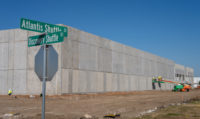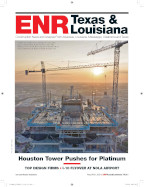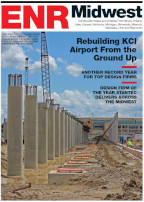Houston will host to the tenth commercial spaceport in the United States, following approval announced June 30 from the Federal Aviation Administration.

The Houston Airport System (HAS) has received a Launch Site License from the FAA that will allow the agency to establish Ellington Airport as a launch site for Reusable Launch Vehicles (RLV).
HAS will now move forward with development of infrastructure and support facilities to allow for RLVs, which will require horizontal launches.
“We are finalizing HAS’ Capital Improvement Plan budget. We are allocating $25 million for what will be the initial development at the Houston Spaceport,” Arturo Machuca, general manager at Ellington Airport, tells ENR. “We are calling this development the “Aerospace Design & Solutions Lab”; the final concept will be complete by the end of December 2015.”
HAS is also working with the University of Houston’s Sasakawa International Center for Space Architecture on the project, Machuca adds.
“We are yet to define the extent of our investment, as this is something that we intend to complete in partnership with private industry,” he says. “Design and planning work will begin this summer with construction likely to begin in FY 2017.”
Two years ago, City Council members resoundingly approved the project, which will open the door for Ellington to be a focal point for aerospace operations that include launching micro satellites, astronaut training, zero gravity experimentation and spacecraft manufacturing.
“Based on the space vehicles and concept approved by the FAA-AST, we are ready for operation now,” says Machuca, who led efforts to bring the spaceport project to Ellington. “The real situation is that there is no operator ready to take off as of today and we will have to wait until space vehicles are fully operational. The leading operators have been working on their spacecraft for over a decade in some cases and still working to achieve safe reliable flight for their customers.”





Post a comment to this article
Report Abusive Comment